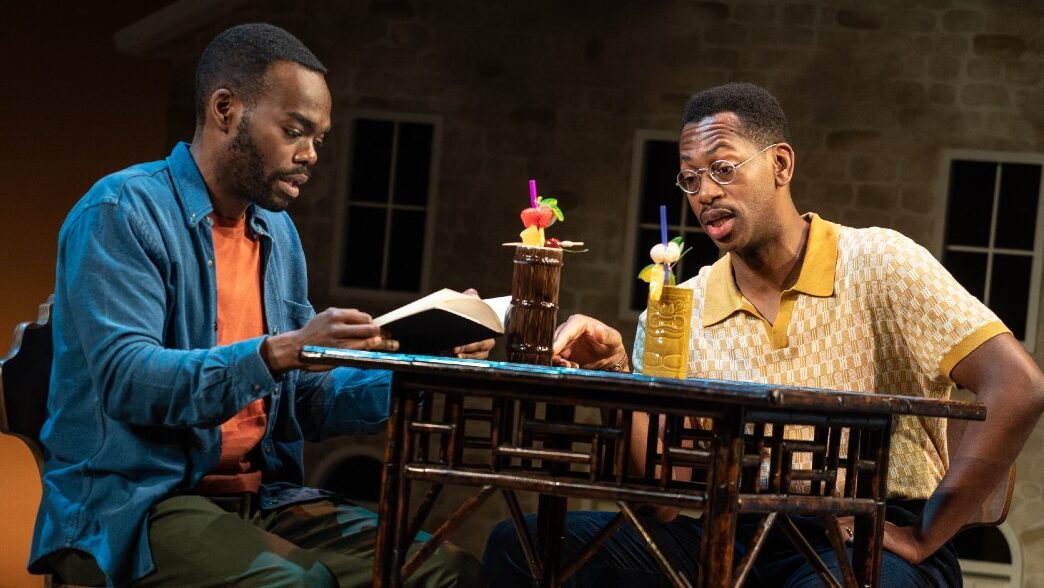
Last week, I told you about two plays we saw on our recent trip to New York City (read my review of “Summer, 1976” here and my thoughts about “Good Night, Oscar” here). We also squeezed in a couple of other shows, including “Primary Trust,” by Eboni Booth.
It stars William Jackson Harper (“The Good Place”) as Kenneth, a man in his thirties who leads a very low-key life. He works in a bookstore and spends every evening at Wally’s bar, where he always orders mai tais in pairs — one for himself and one for his only friend, Bert (Eric Berryman of “Atlanta”).
Kenneth’s world is rocked when the owner of the bookstore tells him he’s closing the place and moving away. That means Kenneth has to find a new job, something he’s never done on his own, since it was a social worker who got him the bookstore job twenty years ago when he became an orphan. This is not a simple task for someone as introverted as Kenneth. Yet when he is hired as a bank teller, it turns out he’s extremely good at the job, particularly in upselling customers to open new accounts, invest in CDs, and take out mortgages.
If it seems like nothing much goes on in “Primary Trust,” that’s kind of the point. It’s all about this one man trying to find a place in society where he’s comfortable and can communicate with those around him. Other characters include several bank customers and a slew of servers at Wally’s (all played with different voices and attitudes by April Mathis), with Jay O. Saunders taking on the roles of the bookstore owner, the bank manager, and a waiter in a French restaurant.
“Primary Trust” offers a glimpse of Kenneth’s life, his trauma, and how he copes in his small town. Harper, who is onstage for virtually the entire 95 minutes, plays him with a nervous anxiety that engenders both empathy and relatability from the audience. The rest of the ensemble works together smoothly, switching from one character to another at the sound of an offstage bell. That device was overused and interruptive, but everything else about the play worked for me.
I give “Primary Trust” an 8.5 out of 10.
One final note. The play begins with Harper walking to center stage and addressing the audience, saying, “This is what happened.” At the performance we attended, as soon as he said that, an audience member’s cell phone rang quite loudly. Harper clearly heard it and paused, followed by a woman a few rows ahead of us saying, in the most stereotypical New York accent imaginable, “I thought I turned it off.” A nervous laugh filled the theater. Even Harper giggled, and then needed a few seconds to reset before beginning anew. Ah, the fun of live theater.
Updated 5/6/24: I wasn’t the only one who loved “Primary Trust.” Today, playwright Eboni Booth was awarded the Pulitzer Prize for Drama.
Tomorrow: my review of “Leopoldstadt,” which just won Tom Stoppard his fifth Tony for Best Play.
